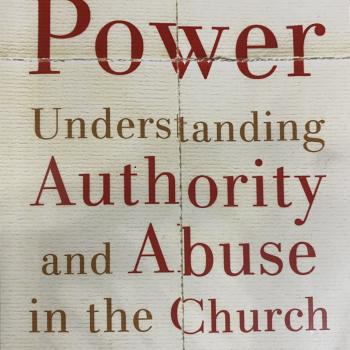Consider identity issues
When some women are criticized, their identity is threatened. The weaker their self-image, the more likely they are to exaggerate the criticism in their own minds. As a result, they may take the criticism to heart and see themselves differently. You may observe hypersensitivity, fear, and even depression, uncharacteristic of this woman before. This kind of negative thinking impedes a woman from healthy interaction in the reconciliation process.
If you observe imbalance and extremes in a woman’s behavior, demeanor, and body language, help her understand that she may be experiencing an identity crisis. Teach her that we all make mistakes and have much to learn. Show her that the Bible helps us ground our identity in Christ—the only One who will never disappoint us. She must learn to perform for an audience of One.
Teach women to be more direct in their communication
The tendency of some women to be indirect in communication hinders them from working through conflict effectively. If you observe this communication style either in the negotiations or in behavior that caused the conflict, point out this tendency and the problems this causes. Challenge them to be direct, but do so with a gentle spirit and kind words unless you sense a hard heart and rebellious spirit. Then a firm, strong disciplinary style is appropriate and sometimes required.
This is especially true if you sense that one or both are emotionally and spiritually unhealthy. Marshall Shelley refers to these people as “dragons” in his excellent book, Well-Intentioned Dragons, Ministering to Problem People in the Church (Bethany House Publishers, Minneapolis, Minnesota, 1985). If you are working with a dragon, you may want to read this book, but remember it is written from a male perspective and will not always apply when you are overseeing a negotiation with women.
Teach women to stop avoiding conflict
Many women are master “avoiders.” They see conflict as a threat to relationships, a precious commodity in most women’s lives. Help them understand how avoiding conflict leads to serious consequences that actually endanger relationships instead of preserving them.
Teach women that Matthew 18:15–17 applies to them too
If, after listening to both sides process through the issue, you see sinful patterns of gossip, avoidance, slander and the like, point them to Matthew 18. Teach them the “pure milk of the Word” even if you think they should already know it. Help them understand that you are not taking sides, but that you are committed to biblical standards. And you expect them to do the same. Help them see that their particular controversy is not the exception and that sidestepping Matthew 18:15-17 is sin.
Stay on point
Wounded women tend to wander wherever their emotions take them. Be ruthless in bringing them back to the facts of the issue. Once the facts are clear, give each woman all the time she needs to tell her side of the story and how she was impacted by the situation. Challenge each one to listen without creating responses in her head. Guide the women to mutual empathy and understanding. Ask them to summarize what they are hearing or do so yourself.
Include a trusted woman if appropriate
Sometimes women can hear what men cannot, especially when other women are involved. If you struggle to grasp the intricacies of the situation, consider asking a woman on staff or a female counselor to join you. However, she must be the right woman. She must be neutral, above reproach, and able to keep a confidence. One advantage of bringing women on staff is that they serve as capable partners in the peace process with women.
Exclude spouses if possible
Spouses are usually aware of the dispute, and they should be. But their attendance at the peacemaking table is not a good idea. Most spouses find it almost impossible to remain neutral and their very presence adds an extra level of tension in the room.












